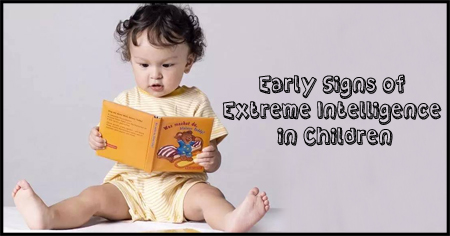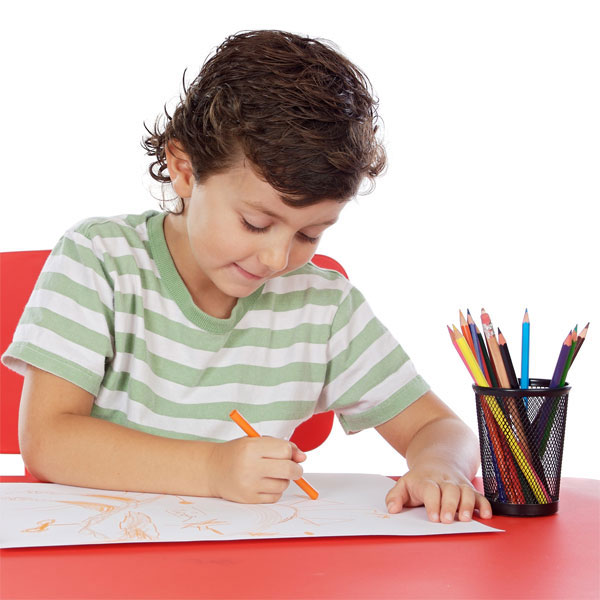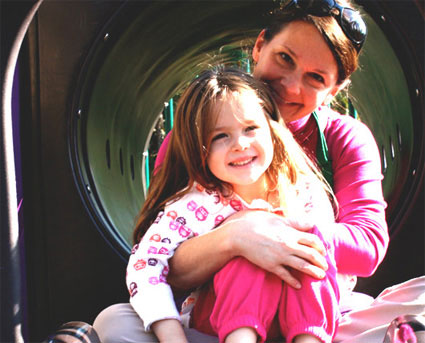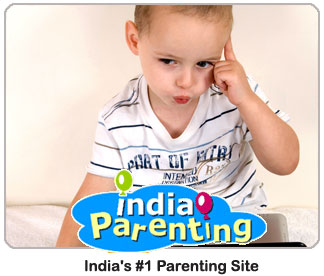For parents it is a must to know about the early signs of extreme intelligence in children. It will help them to nurture child’s talent and at the same time it will not go unnoticed. Read on to learn about the early signs of extreme intelligence in children.Each child is unique, and each develops intellectually in her own way. Nevertheless, some young children tend to develop much more than their peers at school and parents and teachers may not always depend on group IQ tests, achievement scores and past grades as they might not necessarily be high achievers.Though early identification of a child’s intelligence can be a controversial subject, parents of such children should opt for early screenings so as to recognise and nurture their talents. Therefore, if you notice these signs in your child, your child might just be exceptionally bright or gifted. Let us take a look at the early signs of extreme intelligence in children. In this articleHas an Unusually Strong MemoryHas an Exceptionally Large VocabularyLikes Structure, Order and ConsistencyDisplays a Great Curiosity and Asks QuestionsHas Good Individual Skills1. Has an Unusually Strong MemoryChildren are usually taught to memorise poems at a young age, but it can have two possibilities when it comes to exceptionally bright children. One group of children can take half the average time taken by their friends to learn a difficult poem by heart;on the other hand, a second group can tend to forget at the end of the day. On the other hand, the latter group will observe and remember things that are ignored and forgotten even by their elders.2. Has an Exceptionally Large VocabularyGifted children often express an interest in books which boost the number of words they learn in a day, but many other children pick up words from the environment and can use them in meaningful sentences as well. In short, their observation and memory powers are much sharper than most children of their age. Such children are also bored with memorisation and recitation at school and prefer original expression over answers memorised by heart.3. Likes Structure, Order and ConsistencyChildren, when playing with certain toys, can display a sense of order and consistency. Grouping objects into sets of similar colours or shapes or making a proper structure out of building blocks at a very young age can point towards an organised mind. Such children also possess great concentration and do not give up until they solve a problem, using their own intelligence and resourcefulness. They are usually self-disciplined by nature, which is termed as ‘good behaviour’ by outsiders, or even unusually naughty in a need to express their boundless energy.4. Displays a Great Curiosity and Asks QuestionsExceptionally bright children love to ask thought-provoking questions about everything. They have an interest in events, things and situations and then analyse through their own child’s eye. As they grow older, asking questions can be replaced by reading lots of informative material on their own within their capacity. They also refuse to see their environment as a one-dimensional object and try to find out more about everything, far beyond than general children their age. Such children can also have a deep interest in science and literature.5. Has Good Individual SkillsSome children make associations between remote ideas. Instead of brushing them as childish, pay attention to what they are saying. These children are much more open to the environment and absorb all that is around them. They are also willing to accept complexity and use abstraction, concept and synthesis to understand a subject. Unusual reasoning and common sense are an added bonus to their ever-working brains.It should also be kept in mind that gifted children may not be the highest achiever or the most popular children in schools. Many bright children also suffer from isolation from their peers and may have an emotional insecurity. Therefore, it is the joint effort of the parents, teachers and a children’s counsellor alike to recognise and understand the mind of the child so that she is able to use her talents in a more fulfilling way in the future.What are the signs that a child is extremely intelligent? How to nurture the talent of extremely intelligent children? Which stream of education is suitable for extremely intelligent children? Discuss here.
For parents it is a must to know about the early signs of extreme intelligence in children. It will help them to nurture child’s talent and at the same time it will not go unnoticed. Read on to learn about the early signs of extreme intelligence in children.Each child is unique, and each develops intellectually in her own way. Nevertheless, some young children tend to develop much more than their peers at school and parents and teachers may not always depend on group
IQ tests, achievement scores and past grades as they might not necessarily be high achievers.
Though early identification of a child’s
intelligence can be a controversial subject, parents of such children should opt for early screenings so as to recognise and nurture their talents. Therefore, if you notice these signs in your child, your child might just be exceptionally bright or gifted. Let us take a look at the early signs of extreme intelligence in children.
1. Has an Unusually Strong Memory
Children are usually taught to memorise poems at a young age, but it can have two possibilities when it comes to exceptionally bright children. One group of children can take half the average time taken by their friends to learn a difficult poem by heart;on the other hand, a second group can tend to forget at the end of the day. On the other hand, the latter group will observe and remember things that are ignored and forgotten even by their elders.
2. Has an Exceptionally Large Vocabulary
Gifted children often express an interest in books which boost the number of words they learn in a day, but many other children pick up words from the environment and can use them in meaningful sentences as well. In short, their observation and memory powers are much sharper than most children of their age. Such children are also bored with memorisation and recitation at school and prefer original expression over answers memorised by heart.
3. Likes Structure, Order and Consistency
Children, when playing with certain toys, can display a sense of order and consistency. Grouping objects into sets of similar colours or shapes or making a proper structure out of building blocks at a very young age can point towards an organised mind. Such children also possess great
concentration and do not give up until they solve a problem, using their own intelligence and resourcefulness. They are usually self-disciplined by nature, which is termed as ‘good behaviour’ by outsiders, or even unusually naughty in a need to express their boundless energy.
4. Displays a Great Curiosity and Asks Questions
Exceptionally bright children love to ask thought-provoking questions about everything. They have an interest in events, things and situations and then analyse through their own child’s eye. As they grow older, asking questions can be replaced by
reading lots of informative material on their own within their capacity. They also refuse to see their environment as a one-dimensional object and try to find out more about everything, far beyond than general children their age. Such children can also have a deep interest in science and literature.
5. Has Good Individual Skills
Some children make associations between remote ideas. Instead of brushing them as childish, pay attention to what they are saying. These children are much more open to the environment and absorb all that is around them. They are also willing to accept complexity and use abstraction, concept and synthesis to understand a subject. Unusual reasoning and common sense are an added bonus to their ever-working brains.
It should also be kept in mind that
gifted children may not be the highest achiever or the most popular children in schools. Many bright children also suffer from isolation from their peers and may have an emotional insecurity. Therefore, it is the joint effort of the parents, teachers and a children’s counsellor alike to recognise and understand the mind of the child so that she is able to use her talents in a more fulfilling way in the future.
What are the signs that a child is extremely intelligent? How to nurture the talent of extremely intelligent children? Which stream of education is suitable for extremely intelligent children? Discuss here.





























